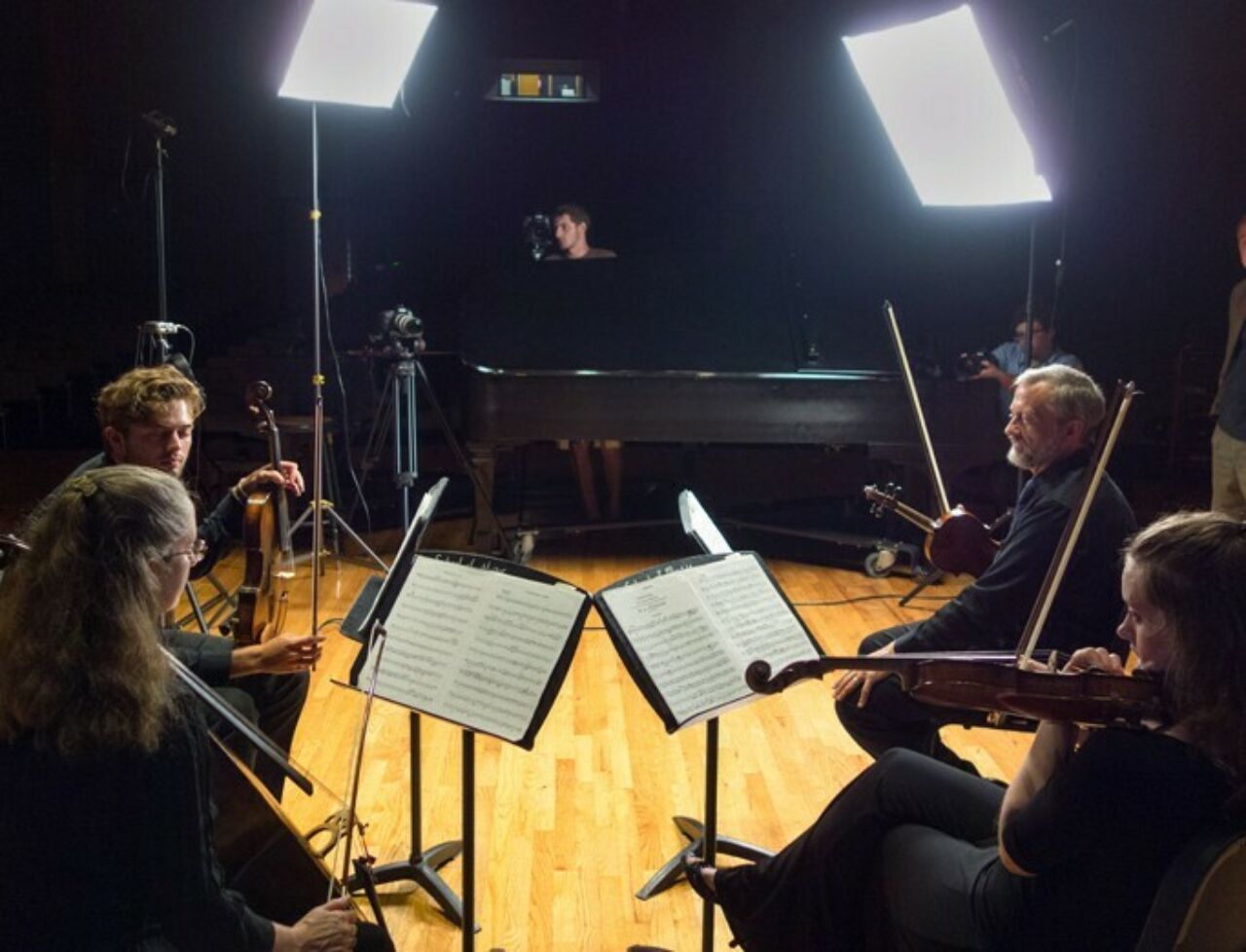
Music, M.A.
Master of Arts in Music (+Integrated Undergraduate-Graduate Option)
If historical inquiry and musical analysis are your passion, this is your program.
The Penn State School of Music offers the Master of Arts in Music with tracks in Musicology, Music Theory, and Integrative Music Theory and History. Students benefit from a distinguished faculty, individualized attention, small class sizes, and all the resources of a Research 1 university. Graduates of our two-year program are prepared to enter top doctoral programs in the field or to pursue a range of professional careers.
Program Application Deadline
Applications received by February 15 will be given full consideration for admission and graduate assistantship funding. A limited number of teaching assistantships (including a full tuition waiver and stipend) are available each year.
To be assured full consideration, please review all details on program and admission requirements, and ensure that you apply by this deadline.
Earn a Master of Arts in Music at Penn State
Take your passion for music study to the next level.
When you pursue an Master of Arts in Music at Penn State, you have the opportunity to work with leading scholars whose teaching and research are recognized across the University, the country, and beyond. The Musicology track (32 credits) emphasizes the development of a broad knowledge of music of all periods and at the same time cultivates one or more areas of specialization. The Music Theory track (32 credits) offers preparation in current modes of research and analysis from a music theoretical perspective. The Music Theory and History track (34 credits) is designed to integrate theoretical, analytical, and historical approaches to musical styles and works. All tracks include special topics courses and electives, allowing you to delve further into a particular area of interest or take classes in different subject areas that complement your primary focus. A thesis is required for graduation.
Next Steps
Program Descriptions
+ MA in Music with Track in Musicology
The MA in Music with Track in Musicology emphasizes the development of a broad knowledge of music of all periods while cultivating one or more areas of specialization. Students in the program benefit from coursework in music history and theory as well as in an area outside of music (known as a “cognate area”) which relates to their particular musicological interest. The program culminates in the writing of a thesis in an area of specialization.
+ MA in Music with Track in Music Theory
The MA with Track in Music Theory is designed as a specialized degree in theoretical and analytical approaches to musical styles and works. The program offers students a thorough and efficient orientation to current modes of research and analysis from a music theoretical perspective. As a post-baccalaureate degree, it has the advantage of breadth in preparing the student to teach the two-year course sequence in the undergraduate theory curriculum at small liberal arts colleges and at community colleges. For the scholar who plans to go on to doctoral studies, this program has the advantage of depth (seminars and thesis work) as well as a broad base of courses required by most doctoral programs.
+ MA in Music with Integrative Track
The MA with Integrative Track in Music Theory and History is designed to integrate historical, theoretical, and analytical approaches to musical styles and practices. The program provides a comprehensive introduction to current modes of research and analysis from both music theoretical and music historical perspectives. Students benefit from integrative graduate seminars led by both musicology and music theory faculty, advanced coursework in music pedagogy, and an integrated thesis experience.
Requirements
Curriculum
The specific course requirements differ among the three degree tracks (see below), but each requires the completion of a six-credit thesis. For all three tracks, at least 18 credits (including the thesis) must be at the 500 level or higher. Additional Graduate Council policies are found under GCAC-600 Research Degree Policies.
Language Proficiency
A reading examination in a language other than English appropriate to the student’s thesis research, as determined by the student’s thesis adviser, must be passed prior to the completion of the degree.
Comprehensive Examination
An oral examination focusing on the student’s thesis research area and coursework must be successfully completed in the final semester. The examination may also require the student to prepare an analysis of a musical work in advance.
Application Requirements
Applicants to the MA program should plan to submit the following materials:
- A statement of purpose (maximum of 2 pages) outlining long-range professional goals and how pursuing the MA in Music at Penn State will help you attain these goals
- A writing sample on a musical topic such as a research paper or thesis chapter (maximum of 20 pages) showing evidence of scholarly potential
- Names and email addresses for two faculty references (Penn State will contact your references directly)
Additional application requirements are found on the School of Music’s Graduate Application Process handbook.

Integrated Undergraduate/Graduate Degree Options
The School of Music’s integrated undergraduate/graduate (IUG) degree options enable gifted music students to streamline two degree programs as well as to pursue their research interests early in the curriculum, thus allowing them to develop a research focus in the fourth and fifth years. It’s an ideal program for high-achieving students ready to delve deeper into their music-related interests and who are potentially interested in doctoral study.
To be considered, students must have successfully completed a selection of Penn State courses in music theory, musicianship, and music history with a minimum GPA of 3.5, and overall GPA of 3.0. Students admitted to the IUG program are eligible for a graduate assistantship in their fifth year.
Considering the Master of Arts in Music? Consider this.
You have the opportunity to focus on Musicology, Music Theory, or Music Theory and History.
- As a post-baccalaureate program, students are prepared to teach at the collegiate level.
- Prepare for doctoral work with integrated seminars and many courses required by doctoral programs.
- The M.A. provides an interdisciplinary approach to the field of music scholarship.
- IUG options enable you to earn B.A./M.A. or B.M./M.A. degrees in five years.
